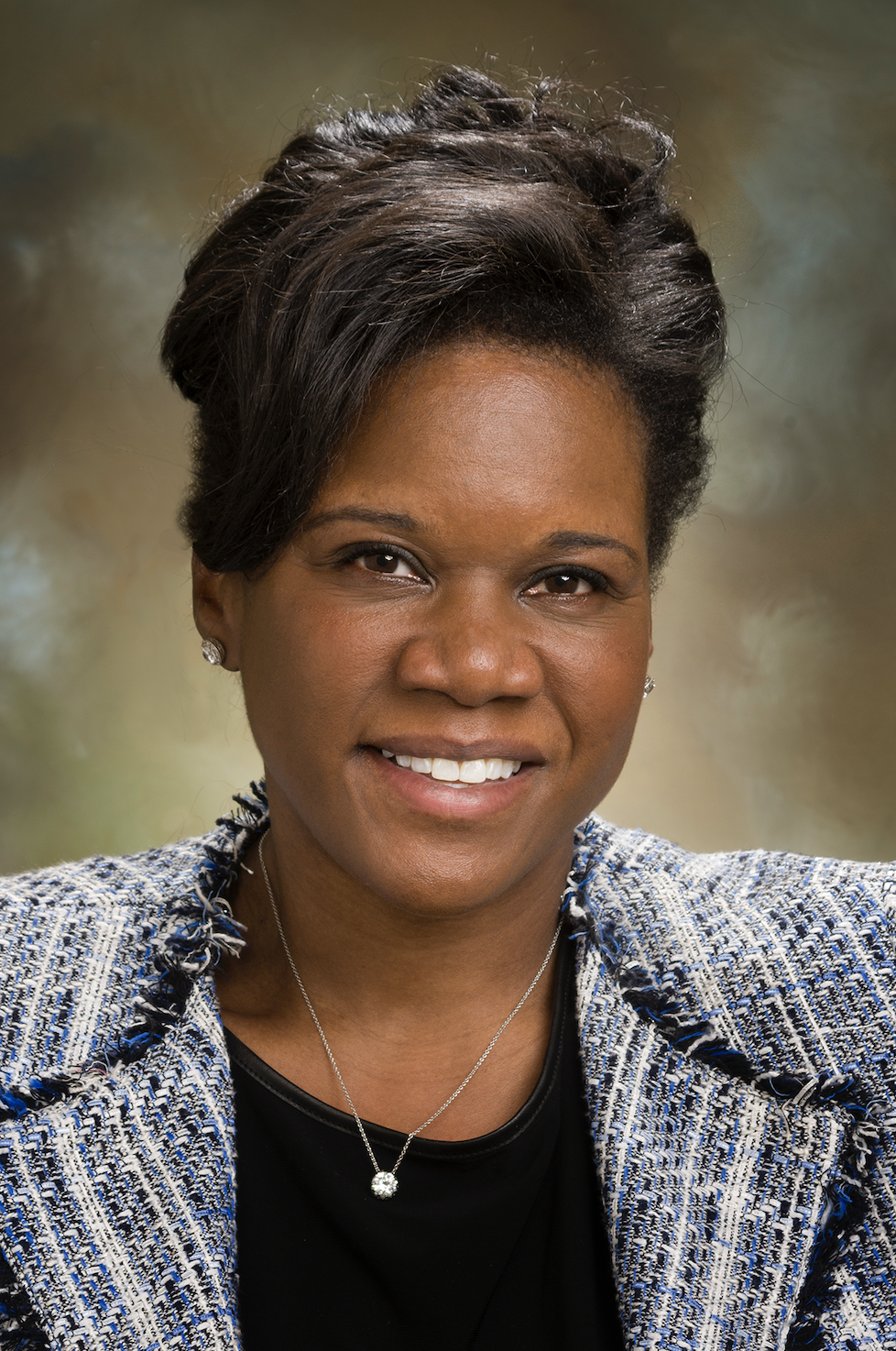
Marie-Carmelle Elie, M.D., FACEP, FCCM, FAAEM, RDMS, accomplished professor and chair of the Department of Emergency Medicine, has received the distinct honor of being elected into the National Academy of Medicine (NAM). Induction into the NAM is one of the highest honors for a physician in the U.S. This recent accomplishment is an incredible feat for Elie and the department she leads.
The Academy selection process highlights those who have made major contributions to advance health care, medical sciences, and public health and have demonstrated a dedication to service. With an undergraduate degree from Columbia University and a medical degree from the State University of New York in Brooklyn including a distinction in research, she continues her work in education, research and innovation including more than 100 publications to date. Elie completed her emergency medicine residency at Mount Sinai Medical Center in New York, followed by the highly acclaimed Critical Care/Trauma Fellowship at the R. Adam Cowley Shock Trauma Center at the University of Maryland. To add to her many accomplishments, she is triple board-certified in emergency medicine, critical care, and hospice/palliative care medicine. After stops in New Jersey and Florida, Dr. Elie became the first African American woman to chair an academic emergency department in the nation representing the first scholar at the crossroads of the emergency medicine, critical care, and palliative care disciplines to achieve such recognition in North America.
Dr. Elie says she is incredibly humbled by her induction into NAM and is grateful for the countless patients that have participated in her journey. Her recognition stems from establishing novel programs that impact on patient care and their survival. “My greatest passion has been to improve the survival of patients experiencing serious illness to improve their dignity and quality of life. Emergency medicine represents both a service and concept where early decisions made at critical inflection points in acute illness may have a longstanding impact on outcomes.” Years in advance of CMS core measures and state mandates for sepsis protocols, Dr. Elie established hospital- and community-wide sepsis programs that served as proof of concept for the early identification and streamlined management of sepsis from the patients home using the pre-hospital system to the emergency room and finally critical care environments in order to effectively improve outcomes. As an example, the model expansion of these programs across North Central Florida leveraged prehospital and emergency medical systems improving sepsis outcomes for Floridians over a 100 mile radius. Her sepsis research focuses on strategies to abate the progression to acute respiratory distress syndrome. Her work features the initial studies designed to administer convalescent plasma to treat infectious disease such as influenza. With the increasing recognition of a complex and aging population of patients experiencing deaths in hospital ICUs, Dr. Elie established family support and palliative care service lines in several hospitals, transforming care models among patients at the end stages of disease or terminal illness, and increasing hospice enrollment for patients dying in hospitals. She has helped develop and teach a palliative care communication series for emergency providers that has been delivered to numerous emergency departments across the US and is currently engaged as an investigator in 2 of the highest funded palliative care clinical trials in the nation. As a former chief medical officer of one of the largest hospice and palliative care organizations in Florida, she has partnered with community hospice and home health agencies to provide home based services to allow for timely discharge to home from the ED and ICUs to improve the quality of life of patients at the end stages of their chronic illness. During the COVID pandemic, she championed the largest effort to continue home-based care for the elderly and dying at the height of the crisis. She continues her work in sepsis and palliative care at UAB.
“I am grateful beyond measure and thankful to all who played a role in my nomination,” says Elie. “This is a direct reflection of the support from the entire Emergency Medicine department and our great institution.”